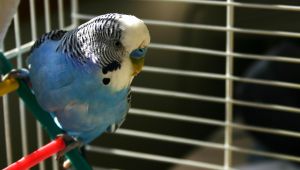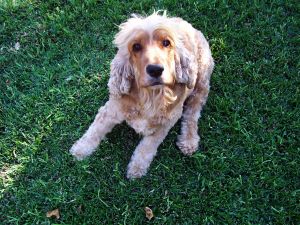 Although seeds are a convenient and affordable option when it comes to feeding your pet bird, they actually aren’t the best in terms of nutrition, and feeding a diet made up exclusively of seeds can result in a number of health problems, including cardiovascular issues and malnutrition, in the long run.
Although seeds are a convenient and affordable option when it comes to feeding your pet bird, they actually aren’t the best in terms of nutrition, and feeding a diet made up exclusively of seeds can result in a number of health problems, including cardiovascular issues and malnutrition, in the long run.
It’s All About Variety and Whole Foods
When it comes to avian care and nutrition, things are more complicated than they appear on the surface, and while you may have thought that purchasing seeds from your local pet store was enough to keep your feathered friend happy and healthy, the truth is your bird’s diet should contain a lot more variety in order to be absolutely sure all of her nutritional needs are met.
According to Holistic Care for Birds: A Manual of Wellness and Healing by Dr. David McCluggage, DVM, and Pamela Leis Higdon, even supplements added to seeds aren’t sufficient because they fail to provide the cofactors, micronutrients, enzymes, coenzymes, and trace minerals that birds get from fresh, whole foods.
Consider the Species
Different bird species have different nutritional requirements, so you need to take this into consideration when choosing what foods are appropriate. For example, finches and canaries primarily consume seeds, but they should still only make up about 50% of the overall diet, according to Dr. McCluggage. 25% of the diet should consist of vegetables and fruits, and whole grains can make up 15%, with the final 10% consisting of yogurt, cooked eggs, and legumes. Budgies, too, shouldn’t eat a 100% seed-based diet because it can lead to fatty liver disease, renal tumors, obesity, gout, and respiratory diseases.
Fruits and Vegetables
Before you feed your bird fruits and vegetables, do your research to find out if any are toxic to the species. Dr. McCluggage suggests providing seeds, nuts, and grains, as well as fruits that include apricots, bananas, cantaloupe, and raisins. See which ones your bird prefers. Some will only eat them fresh, while others will eat them only after they’ve been dehydrated.
Steamed or lightly cooked vegetables are also a good way to add some variety and nutrition to your bird’s diet. Good options include dark leafy vegetables, sweet potatoes, carrots, kale, and capsicum peppers. Once again, work with your individual bird to figure out her preferences.
Seeds: The Good and the Bad
Seeds that are high in fat, such as safflower, sunflower, and peanuts, should be fed sparingly. Beneficial seeds and grains include millet, wheat, barley, oats, buckwheat, rye, and canary seed. You can even choose sprouted seeds like wheat, millet, and oat.
A Word about Pellets
Many bird owners choose pellets, and this is a good option to replace a lot of the seeds you may already be feeding your bird. Remember, moderation is key, so you can provide some seeds and then add in pellets, making sure they’re organic and natural, while also providing plenty of fresh whole foods as well. This will keep your bird from getting bored while meeting her nutritional requirements.
If you’re unsure of what foods are most appropriate for your bird’s species, talk to your vet or consult with an avian specialist.





